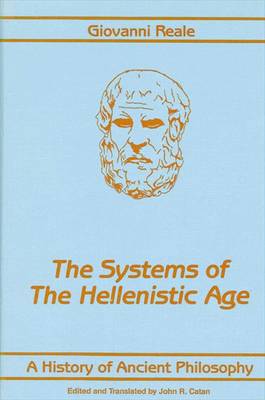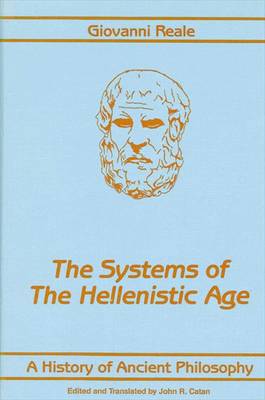
- Afhalen na 1 uur in een winkel met voorraad
- Gratis thuislevering in België vanaf € 30
- Ruim aanbod met 7 miljoen producten
- Afhalen na 1 uur in een winkel met voorraad
- Gratis thuislevering in België vanaf € 30
- Ruim aanbod met 7 miljoen producten
Omschrijving
Reale's volume supplies a synthesis previously lacking-a synthesis in the historical treatment of the great philosophies of the Hellenistic Age: the Academy, the Peripatos, the Stoa, the Garden of Epicurus, Scepticism, and Eclecticism. Reale's extensive and fully documented treatment of the major schools of the period is unified by his thesis that the ethics developed by these major schools were secular faiths that sprang from intuitions about the meaning of life first emotionally grasped and then systematically and rationally developed. It is for this reason that the teachings of these schools endured almost continuously for about 500 years. It is for the same reason that the founders of the schools were considered gods and were actually, in a certain sense, the saints of secular faiths and religions.
In this book, Reale traces the decline of the philosophical schools of the classical period, the post-Platonic Academy, the post-Aristotelian Peripatos, and the minor socratic schools. The destruction of the polis and the incapacity of the schools to address the concerns of the new age were the fertile grounds from which the new schools developed. The Garden of Epicurus, the Porch of Zeno, and the sceptical movement initiated by Pyrrho form the core of the volume. The volume contains a select bibliography and an index of names and Greek terms, as well as an index of citations.
Specificaties
Betrokkenen
- Auteur(s):
- Vertaler(s):
- Uitgeverij:
Inhoud
- Aantal bladzijden:
- 527
- Taal:
- Engels
- Reeks:
Eigenschappen
- Productcode (EAN):
- 9780887060083
- Verschijningsdatum:
- 30/06/1985
- Uitvoering:
- Paperback
- Formaat:
- Trade paperback (VS)
- Afmetingen:
- 152 mm x 229 mm
- Gewicht:
- 725 g

Alleen bij Standaard Boekhandel
Beoordelingen
We publiceren alleen reviews die voldoen aan de voorwaarden voor reviews. Bekijk onze voorwaarden voor reviews.











